Tour of Flanders: Most successful riders, fastest editions, winning margins
Facts, figures, stats and stories from Flanders' Finest
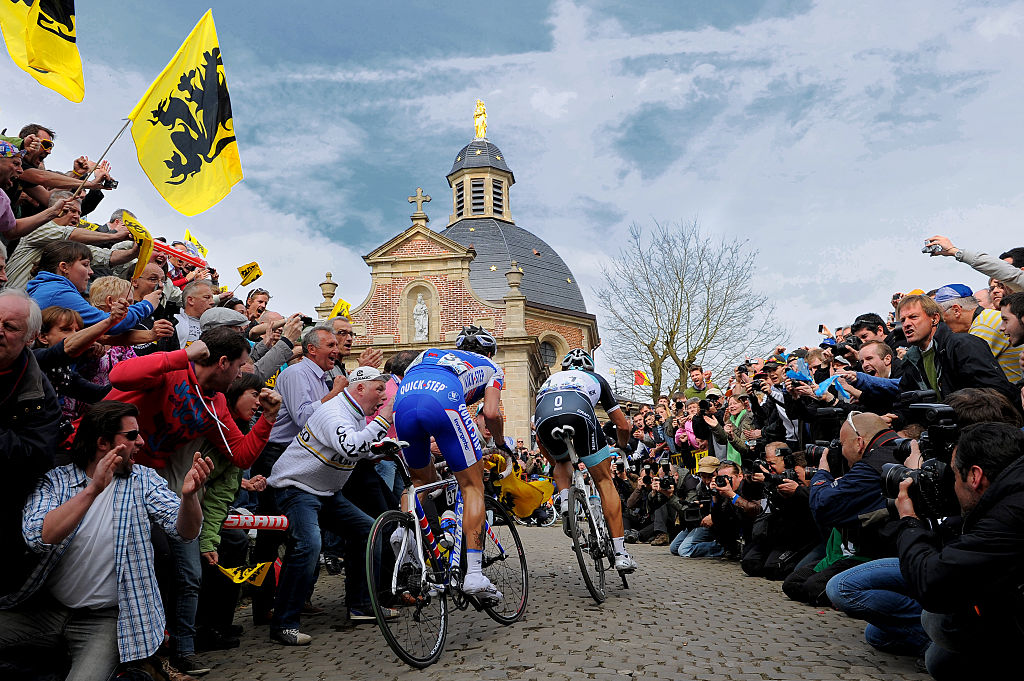
The Tour of Flanders, known as Vlaanderens Mooiste (Flanders' Finest), rose to the level of almost religious ritual for Belgians soon after the editor of Sportwereld, Karel van Wijnendaele, organised the race for the first time in 1913. While the early years were marked by terrible road conditions as a result of two World Wars, the later editions were celebrated for the rough, cobbled hellingen.
For many years, the key Tour of Flanders climb was the Muur van Geraardsbergen, with its iconic chapel at the top, followed by the Bosberg before a finish in Ninove. That was until 2012, when organiser Flanders Classics moved the finish to Oudenaarde, creating a finishing circuit that includes the Paterberg and Oude Kwaremont.
Throughout history, the steep, cobbled climbs have shaped the race, created legends and thrilled generations of cycling fanatics from around the world. The hard men who became champions earned the title 'Flandrien' and 'Flahute' for their exploits over difficult terrain and long distances, and in terrible weather.
Cyclingnews scoured the race results from the last 40 years of De Ronde for the facts and figures who have shaped the modern era of the race.
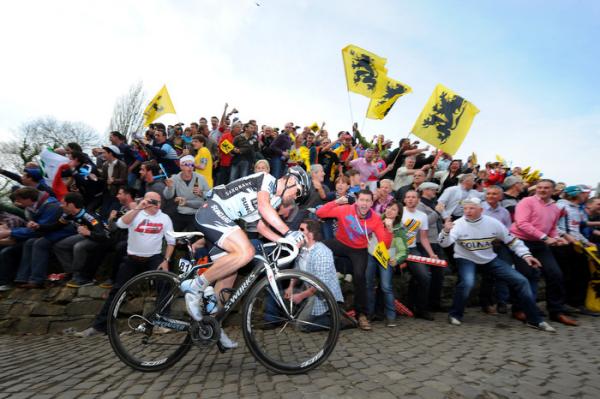
Most wins
No rider has won the Tour of Flanders more than three times throughout the race's history, but there are six triple winners.
Triple winners
- Achiel Buysse (1940, 1941, 1943)
- Fiorenzo Magni (1949, 1950, 1951)
- Eric Leman (1970, 1972, 1973)
- Johan Museeuw (1993, 1995, 1998)
- Tom Boonen (2005, 2006, 2012)
- Fabian Cancellara (2010, 2013, 2014)
Double winners
Get The Leadout Newsletter
The latest race content, interviews, features, reviews and expert buying guides, direct to your inbox!
- Gerard Debaets (1924, 1927)
- Romain Gijssels (1931, 1932)
- Briek Schotte (1942, 1948)
- Rik Van Steenbergen (1944, 1946)
- Rik Van Looy (1959, 1962)
- Walter Godefroot (1968, 1978)
- Eddy Merckx (1969, 1975)
- Jan Raas (1979, 1983)
- Edwig Van Hooydonck (1989, 1991)
- Peter Van Petegem (1999, 2003)
- Stijn Devolder (2008, 2009)
Most successful - Johan Museeuw
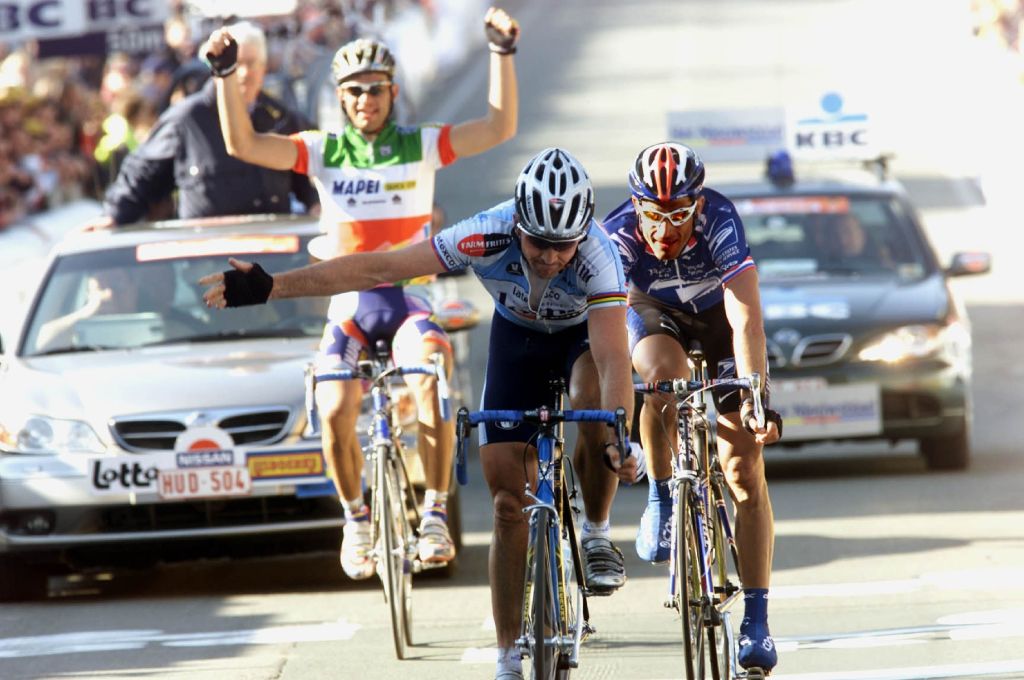
Johan Museeuw has stood on the podium the most times since 1990. In addition to his trio of victories, he has been second three times and third once. Fabian Cancellara has stepped onto the dais five times – finishing second and third one time each. Boonen, in addition to three wins, finished second in 2010.
Peter Van Petegem and Stijn Devolder are the next most successful riders of the modern era, with two wins each. Van Petegem also has two third places in De Ronde to his name.
Winner of the 2018 edition, Niki Terpstra, is the most successful active rider, with a second place in 2015 and third in 2017, while Peter Sagan is the next-most-successful still-active rider with the victory in 2016 and the runner-up spot in 2013.
Philippe Gilbert – still racing at the age of 37 for Lotto Soudal – has equalled Andrei Tchmil's record of one win and three third places.
| Pos. | Rider Name | Wins | 2nds | 3rds |
|---|---|---|---|---|
| 1 | Johan Museeuw | 3 | 3 | 2 |
| 2 | Fabian Cancellara | 3 | 1 | 1 |
| 3 | Tom Boonen | 3 | 1 | Row 2 - Cell 4 |
| 4 | Peter van Petegem | 2 | Row 3 - Cell 3 | 2 |
| 5 | Stijn Devolder | 2 | Row 4 - Cell 3 | Row 4 - Cell 4 |
| 6 | Niki Terpstra | 1 | 1 | 1 |
| 7 | Nick Nuyens | 1 | 1 | Row 6 - Cell 4 |
| 8 | Peter Sagan | 1 | 1 | Row 7 - Cell 4 |
| 9 | Andrei Tchmil | 1 | Row 8 - Cell 3 | 3 |
| 10 | Philippe Gilbert | 1 | Row 9 - Cell 3 | 3 |
Most finishes - Guesdon and Hincapie, 17
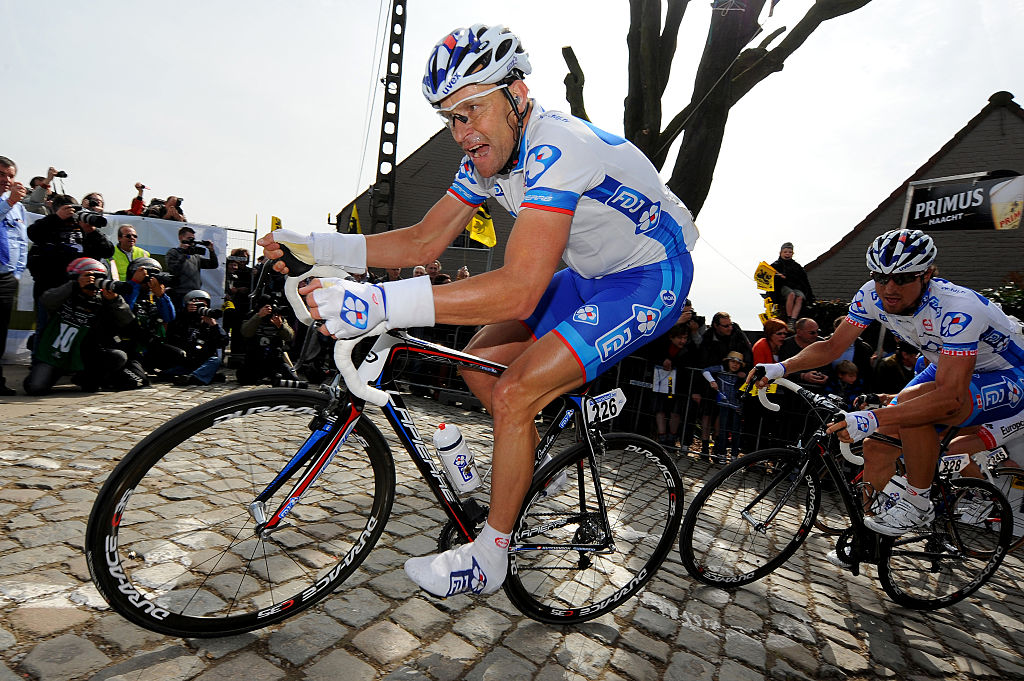
Frenchman Frederic Guesdon and American George Hincapie are tied for the most finishes in the Tour of Flanders, with 17. While Hincapie missed two starts over his 19-year career, Guesdon finished the race 17 times in a row, although Hincapie has finished with higher placings on average, including one podium spot.
Tom Boonen, Stijn Devolder, Erik Zabel, Johan Museeuw and Bernhard Eisel have each raced the event 14 times over the past 40 years. There have been seven riders to finish the race 13 times, 11 riders to finish 12 times, eight to race 11 times and 17 who have completed it 10 times.
The Tour of Flanders is definitely a race for the specialists. Briek Schotte holds the record for starts in the race, with 20.
| Pos. | Rider Name (Country) Team | Result |
|---|---|---|
| 1 | Frederic Guesdon | 17 |
| 2 | George Hincapie | 17 |
| 3 | Stijn Devolder | 14 |
| 4 | Bernhard Eisel | 14 |
| 5 | Johan Museeuw | 14 |
| 6 | Tom Boonen | 14 |
| 7 | Erik Zabel | 14 |
| 8 | Filippo Pozzato | 13 |
| 9 | Andreas Klier | 13 |
| 10 | Marcus Burghardt | 13 |
Nearly man - Greg Van Avermaet
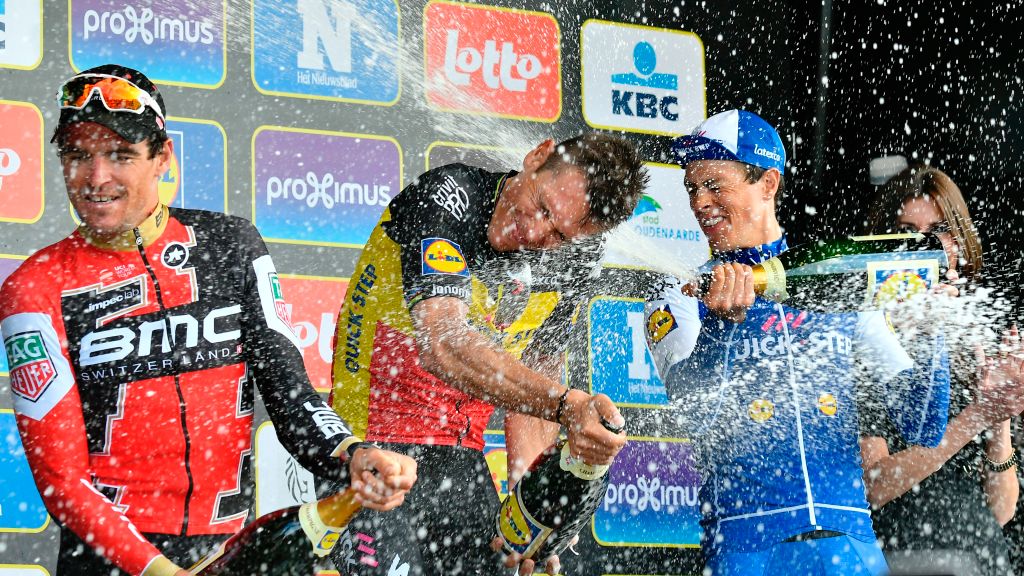
Greg Van Avermaet has been in the top 10 of the Tour of Flanders eight times and on the podium three times, but has not yet managed to win his home Monument, and sits atop the ranking for unluckiest rider.
He's equalled by Franco Ballerini in top 10s, but the Italian only landed on the podium once. George Hincapie made the top 10 seven times and the podium once, in third.
Van Avermaet's most heartbreaking year is undoubtedly 2017 when he was among the strongest in the race but was caught up when a spectator's jacket was got stuck in the wheel of Peter Sagan on the Oude Kwaremont, taking him down along with Oliver Naesen and spoiling the chase of solo leader Philippe Gilbert. Had that not happened, the chasers may have caught Gilbert, and Van Avermaet – who eventually out-sprinted Niki Terpstra for second – was arguably the quickest.
Viatcheslav Ekimov has the most top 10s without a podium finish, with five.
Oldest winner - Andrei Tchmil, 37
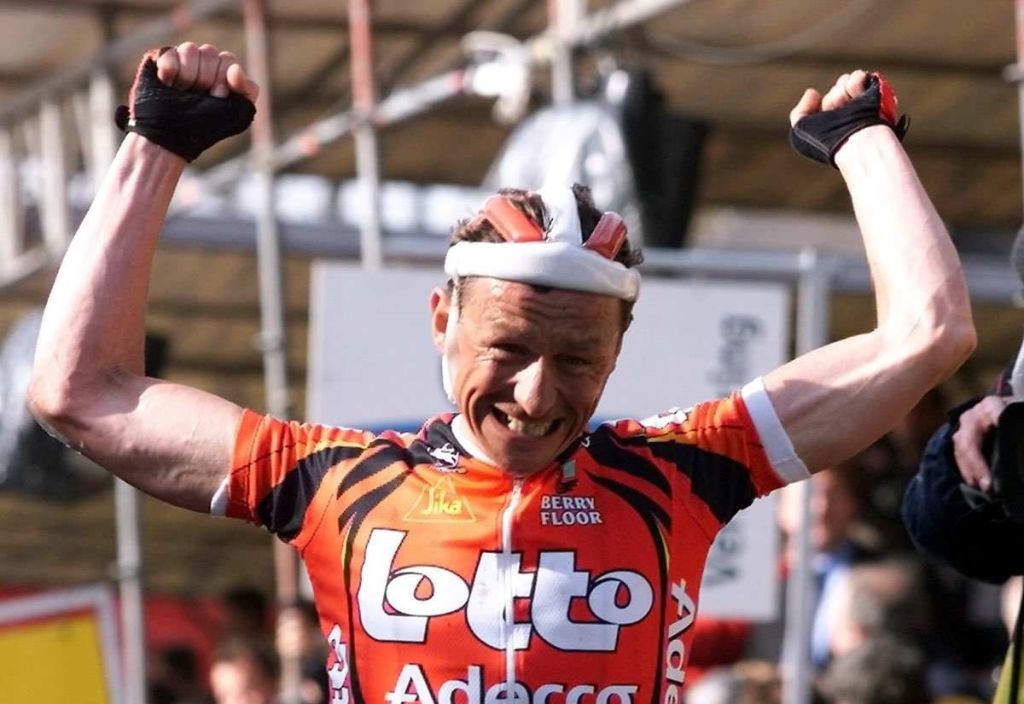
In 2000, Johan Museeuw attacked on the Kapelmuur, pulling away from German Steffen Wesseman, and it looked like another sure thing for the Belgian. But the duo were pulled back before the Bosberg, and Andrei Tchmil made his move – solo, as was his style.
At 37, Tchmil had long since acquired immunity to the screaming pain in his legs, and despite a large group coming together for a sprint behind him in the finishing stretch, the Russian held off to celebrate his first and only win in the Tour of Flanders as the oldest rider in history to do so.
Youngest winner - Tom Boonen, 2005
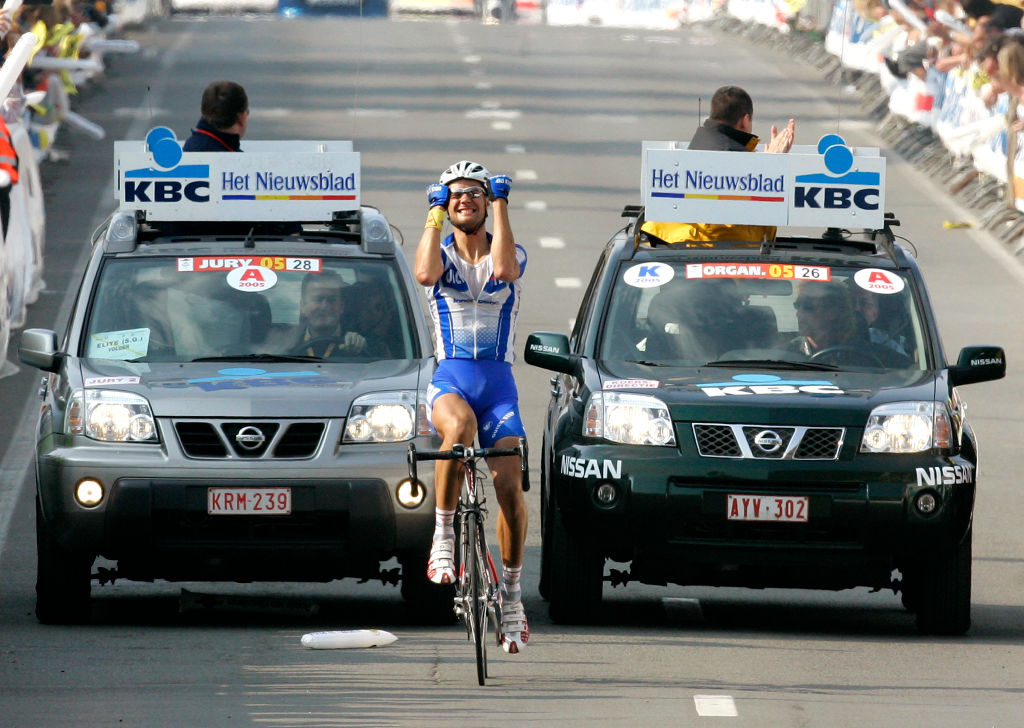
Tom Boonen established himself as a Classics star in his neo-pro year in 2002, ostensibly working for George Hincapie with the US Postal Service team. But an unexpected podium in Paris-Roubaix that year quickly turned his fortunes from helper to protected rider. After switching to Quick-Step in 2003, and landing on the podium at Gent-Wevelgem, Boonen's star was rocketing.
In 2004, he won Gent-Wevelgem, the E3 Prijs Vlaanderen, Scheldeprijs, and two stages of the Tour de France, but was still an understudy when it came to the Tour of Flanders. But in 2005, with Museeuw retired and Paolo Bettini injured, Boonen was given the green light to lead the Quick-Step team.
Known mainly as a sprinter in 2005, Boonen looked around with 10km to go, saw the kind of company he was in and just went for it.
"I knew I couldn't go to the finish with fast guy Zabel there still; he was so strong today," Boonen said after the finish. "Especially also because Andreas Klier and Peter Van Petegem were with me; they would have killed me in the final kilometres. So I decided to take my chances and attacked. I don't quite grasp yet what's happened today. I'll need some more time for it to sink in."
Boonen isn't the youngest rider in history to win the race, however. That honour belongs to Rik Van Steenbergen who, in 1944, won the race when he was 19.
Fastest edition - 2001
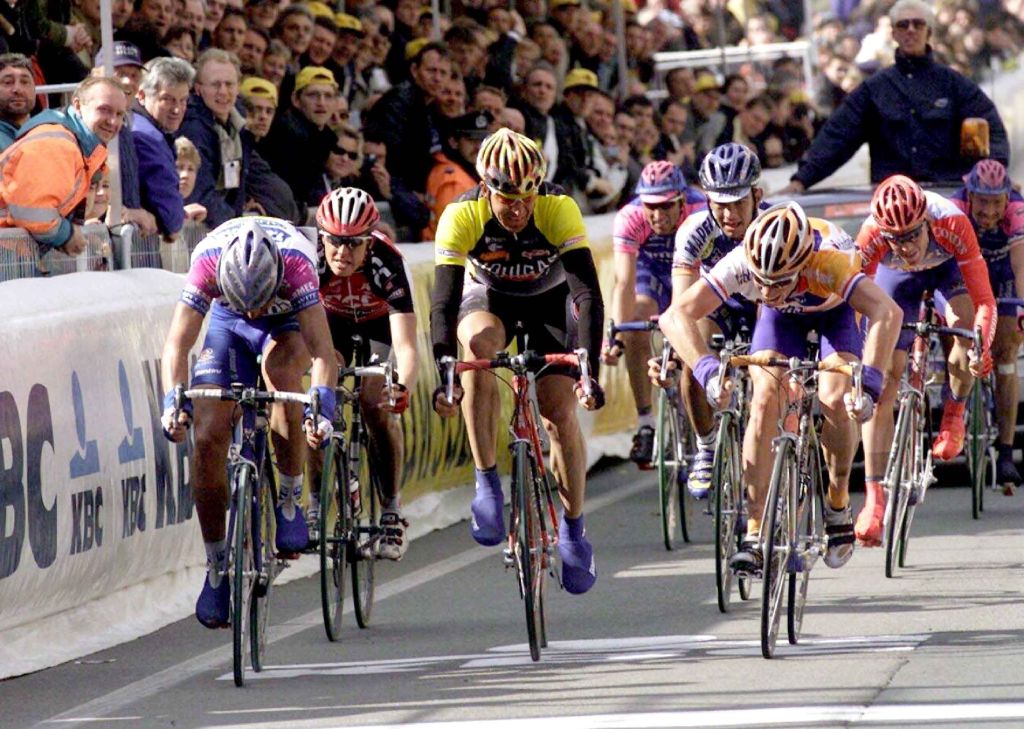
In 2001, the peloton had wet roads and a brisk tailwind for the first 150km of the Tour of Flanders, making for an oddly quick edition. Crashes for key players Museeuw, Van Petegem and Zabel, a big early breakaway and an even bigger later breakaway shaped the first part of the race.
When the race approached the final 40km, Gianluca Bortolami (Tacconi) bridged across to the breakaway with Max Sciandri (Lampre) before coming onto the Kapelmuur with six of the remnants of the earlier escape group. Although Sciandri had Ludo Dierckxsens to lead him out in the uphill sprint, it was Bortolami who timed it right, sneaking up the barriers to snatch the win out of the eight-man group.
The edition was the only one in the last 40 years to have a group that big coming to the line together.
Slowest edition - 1991
Cyclingnews limited the data to the most recent continuous years of available full results, so we looked back as far as 1990, with the slowest edition coming in 1991. It was Edwig Van Hooydonck's second win, and he attacked on the Bosberg to win by 45 seconds over Museeuw.
It was the slowest edition of the Tour of Flanders since Tom Simpson won in 1961.
Solo winners
More than most Classics, the Tour of Flanders is a race for solo attackers, and almost half of the editions since 1990 have been won by a lone escapee. Fabian Cancellara, Johan Museeuw and Stijn Devolder have won solo twice each.
There have been 18 solo winners since 1990 at the Tour of Flanders.
| Fabian Cancellara | 2 | 2010, 2013 |
| Johan Museeuw | 2 | 1995, 1998 |
| Stijn Devolder | 2 | 2008, 2009 |
| Alberto Bettiol | 1 | 2019 |
| Andrea Tafi | 1 | 2002 |
| Andrei Tchmil | 1 | 2000 |
| Edwig Van Hooydonck | 1 | 1991 |
| Jacky Durand | 1 | 1992 |
| Michele Bartoli | 1 | 1996 |
| Niki Terpstra | 1 | 2018 |
| Peter Sagan | 1 | 2016 |
| Peter van Petegem | 1 | 2003 |
| Philippe Gilbert | 1 | 2017 |
| Rolf Sorensen | 1 | 1997 |
| Tom Boonen | 1 | 2005 |
Biggest winning margin - Cancellara, Museeuw
Jurgen Roelands was solo off the front when Fabian Cancellara attacked on the Oude Kwaremont in the 2013 edition, reeling in Michal Kwiatkowski and pulling Peter Sagan along with 18km to go. It was Sagan's early days of stardom but Cancellara was at the peak of his powers. The pair caught Roelands and hit the Paterberg as a trio. With 14km to go, under a slew of flapping Swiss flags, Cancellara accelerated in the saddle to put first Roelands and then Sagan into the hurt box.
Cancellara then got into full time-trial mode, carving out an enormous 1:27 gap over the two chasers across the final 12km.
That margin equalled the one of Johan Museeuw's remarkable 1995 victory, when he attacked Fabio Baldato on the Kapelmuur and soloed in for victory 15km later.
The third-biggest gap was again Cancellara's, from the 2010 edition, when he attacked Tom Boonen on the Kapelmuur to win by 1:17.
Overall average speed - 40.89kph
The overall average speed of the last 40 years of the Tour of Flanders was 40.89kph. The speeds varied more wildly in the 1990s but have become more consistent over time.

Laura Weislo has been with Cyclingnews since 2006 after making a switch from a career in science. As Managing Editor, she coordinates coverage for North American events and global news. As former elite-level road racer who dabbled in cyclo-cross and track, Laura has a passion for all three disciplines. When not working she likes to go camping and explore lesser traveled roads, paths and gravel tracks. Laura specialises in covering doping, anti-doping, UCI governance and performing data analysis.